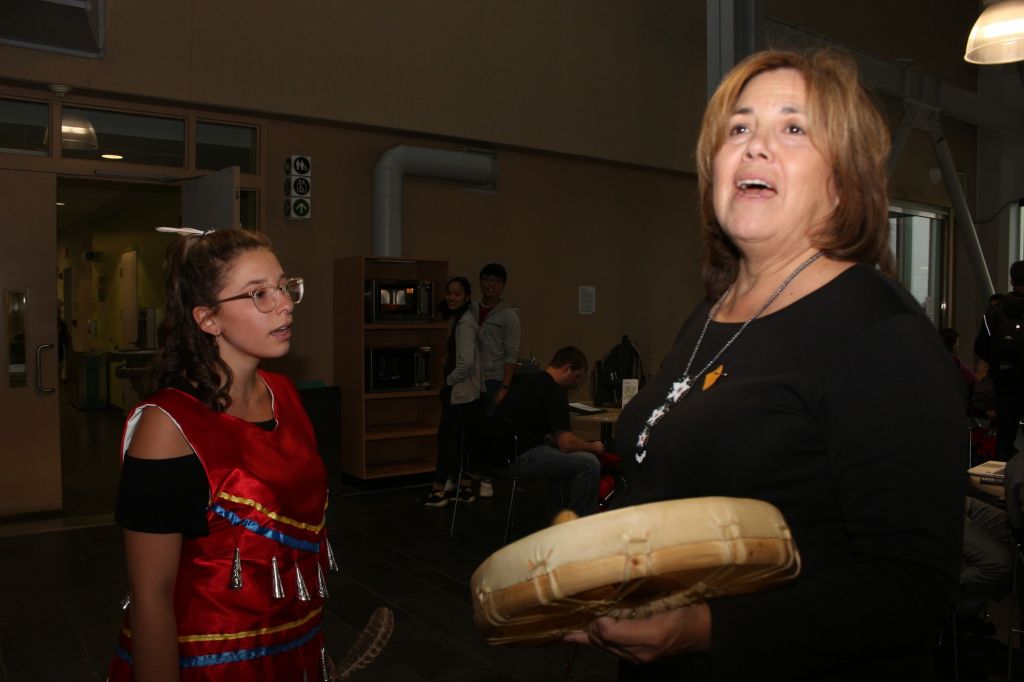The jingle dress worn by Ashley Cardinell, a third-year advertising and marketing communications student, jingled as she lead the Red Dress Walk through the halls of Algonquin College on Oct. 15.
Jackie Tenute, an Indigenous councillor at the Mamidowsewin Centre, played her drum and the two women sang their cultural songs of strength and healing. They were followed by a small group of Indigenous men handing out a small square of moose hide attached to an information card for the Moose Hide Campaign.
The card reads that the “Moose Hide Campaign is a grassroots movement of Indigenous and non-indigenous men and boys who are standing up against violence towards women and children.”
The campaign was started in 2011 by Paul Lacerte, an Indigenous hunter from B.C., with the help of his daughter Raven. They had successfully harvested a moose on lands that border the Highway of Tears, a 724 km section of Yellowhead Highway 16 in British Columbia, which is a dangerous stretch of road where many women have been killed or have disappeared.
The idea came to them while they were cleaning the moose, talking about all the women who had disappeared and wanting to do something. The moose provided the inspiration for what would evolve into a national effort to stop the violence against women and children.
Nathaniel Parant, the activities and event coordinator at the Mamidosewin Centre, estimated that they handed out approximately 500 cards. Parant is hopeful that those 500 cards will help push the conversation forward and effect the cultural shift needed to change the statistics.
Tenute and Cardinell chose one particular song called Strong Woman Song to sing as they walked because they felt it related to the reason they were walking. It was created by inmates of the Kingston Penitentiary for Women.
Tenute explained it was used by fellow inmates to help a woman who was contemplating suicide. The inmates sang the song non-stop all night and refused to let the woman give up. In the morning, she was still alive.
“It feels empowering to represent a lot of hurt families and scared women and girls,” said Cardinell, when asked what wearing the jingle dress meant to her. “It is nerve-wracking to walk around the school singing.”
The jingle dress is a sacred item of Indigenous peoples. The dress worn by Cardinell was made by Tenute and her students last year. It’s their version of the red dress for the Red Dress Campaign which honours the lost and murdered Indigenous women across Canada.
“It is every woman’s dress,” said Tunete, “It represents all of us and holds a lot of power. Each cone holds a prayer.”
According to Tunete the prayers include a hope that one day all women and children across Canada will be safe from the violence that threatens their lives and well-being.
To that end the Moose Hide Campaign works through schools like Algonquin and communities across Canada to spread their message. They also facilitate events where men come together with women. They do the hard work of healing their wounds so they can stop the cycles of violence, especially among Indigenous men where the wounds of racism, colonialism and trauma are both generational and complicated by social factors such as addiction and poverty.
The most recent event took place on Parliament Hill on Oct. 17, 2018 and representatives from the Mamidowsewin Centre participated in the fasting and ceremonies that were part of the day.


